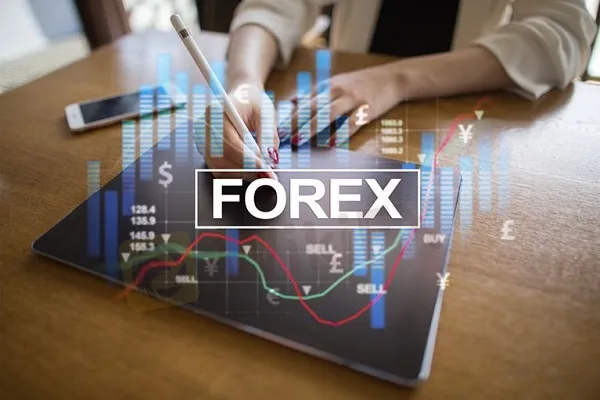简体中文
繁體中文
English
Pусский
日本語
ภาษาไทย
Tiếng Việt
Bahasa Indonesia
Español
हिन्दी
Filippiiniläinen
Français
Deutsch
Português
Türkçe
한국어
العربية
Why Forex Trading Is on The Rise in Africa?
Abstract:According to a recent survey that regulated brokers across Africa have experienced a median growth rate of 21.35% between 2019 and 2020.
According to a recent survey that regulated brokers across Africa have experienced a median growth rate of 21.35% between 2019 and 2020.

While this increase is being largely driven in larger African countries such as South Africa and Nigeria (which are the two biggest forex markets in Africa), were also seeing a significant uptake in emerging areas such as Zimbabwe, Kenya and Botswana.
But why is forex trading on the rise in Africa, and why is Nigeria shaping up to be the dominant market within the region as a whole?
Increased Internet Penetration: While the market leading country Nigeria currently has a 47% Internet penetration rate, this is projected to reach 65% by 2025. This is indicative of the wider rate in Africa, creating a scenario where aspiring traders have far greater access to the forex market in real-time. In Kenya, the corresponding rate is 87.2%, and traders are leveraging this to seek out passive income streams through 2021.
Increased Marketing for Brokers: As technology has evolved to meet forex trading demand in Africa, so too brokers have been empowered to increase their marketing efforts. As the market has subsequently become more competitive too, weve seen more aggressive marketing techniques deployed, with lucrative welcome bonuses and access to universally recognised platforms such as the MetaTrader 4 central to such strategies.
The Impact of Coronavirus: As the coronavirus took hold through 2020 and the first half of this year, people throughout Africa were confined to their homes for extended periods of time. This, combined with the intermittent closures of regional economies, left people searching for passive income streams through the comfort of their own homes, with the forex market offering a viable option for young and old residents alike.
The Rise of Forex Trading in Nigeria and Zimbabwe
Forex trading first became popular in Nigeria during the 70s, when residents saw a spike in their disposable income following a crude oil price boom.
Demand has increased further since this time, especially as the Nigerian economy has evolved and continued to diversify.
A similar trend has evolved in Zimbabwe, despite the challenges posed by ongoing hyperinflation and the monetary policies used by the central bank to try and mitigate the effects of this.
These are two of the fastest-growing forex markets in Africa, which in turn has created a wider service industry and subsequent economic growth. For example, an individual by the name of “Bossy Welly” is said to have coached 2,000 aspiring traders over the course of the past five years in Zimbabwe, with some students as young as 14.
This is contributing to the next generation of traders while helping investors to avoid potential scams and commit their money to viable endeavours.
Disclaimer:
The views in this article only represent the author's personal views, and do not constitute investment advice on this platform. This platform does not guarantee the accuracy, completeness and timeliness of the information in the article, and will not be liable for any loss caused by the use of or reliance on the information in the article.
Read more

New Zealand's FMA Warns Against "YouTube Crypto Investment Scam"
The Financial Markets Authority (FMA), New Zealand's financial regulator, warns individuals against investment scams that use YouTube channels to promote fraudulent cryptocurrency investment firms/websites. The authority explained on its official website how the YouTube cryptocurrency scam works, providing a step-by-step guide to help people recognize and avoid it. Read HOW THE SCAM WORKS and BE SAFE.

Trading is an Endless Journey
Every trader dreams of quick success, but rushing the process often leads to mistakes. It’s easy to get swept up in the excitement of winning trades or discouraged by unexpected losses. The truth is, mastering the emotional side of trading can be even more important than understanding market analysis or strategies.

How to Know if the Market is Correcting or Reversing?
In trading, distinguishing between a market correction and a market reversal is crucial for making sound decisions. Misjudging one for the other can lead to missed opportunities or significant losses. While both involve price movements, their causes, duration, and implications differ substantially. Understanding these differences can help traders improve their strategies and adapt to market conditions effectively.

Empowering the Next Generation in Finance with WikiFX: Gen Z’s Investment Journey
With a steadfast commitment to fostering sustainable financial literacy and providing clear, strategic guidance to the next generation, WikiFX has collaborated with Van Lang University and Hoa Sen University to host an exclusive series of financial education workshops. This marks a pioneering initiative by WikiFX in Vietnam, designed not only to deliver foundational knowledge but also to instill a sense of responsibility and cultivate prudent financial decision-making among aspiring young traders.
WikiFX Broker
Latest News
Two Californians Indicted for $22 Million Crypto and NFT Fraud
Macro Markets: Is It Worth Your Investment?
Trading is an Endless Journey
WikiFX Review: Is Ultima Markets Legit?
Colorado Duo Accused of $8M Investment Fraud Scheme
What Impact Does Japan’s Positive Output Gap Have on the Yen?
RM62k Lost Investment Scam After Joining XRP Community Malaysia on Telegram
Victims of Financial Fraud in France Suffer Annual Losses of at Least €500 Million
Malaysia Pioneers Zakat Payments with Cryptocurrencies
FCA's Warning to Brokers: Don't Ignore!
Currency Calculator


